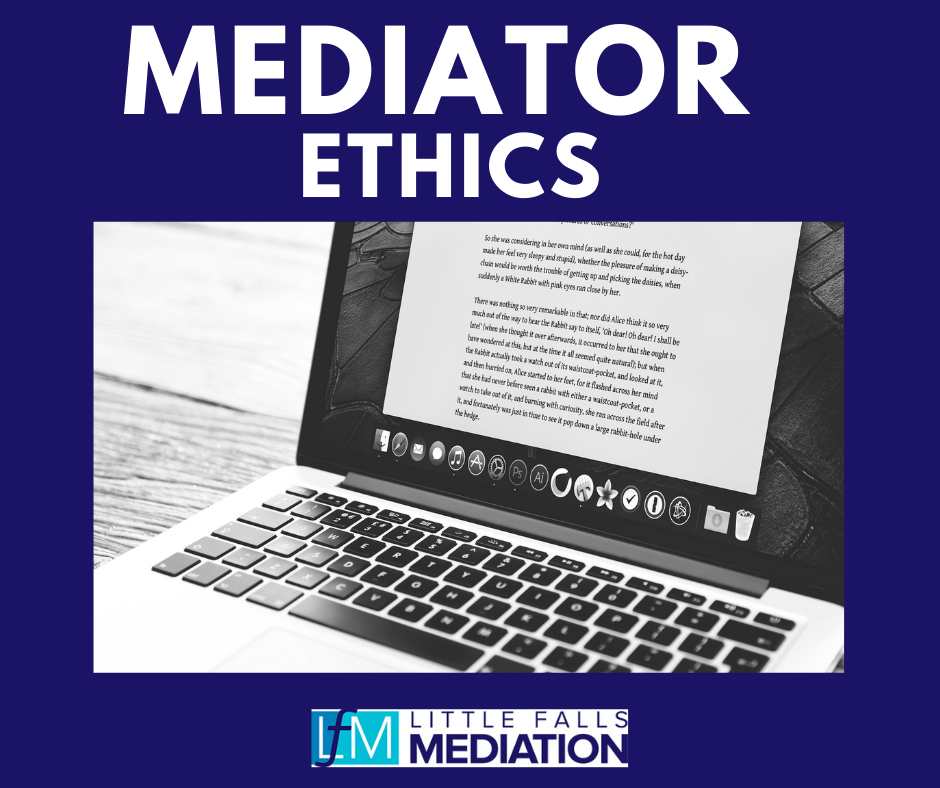 Yesterday I taught my last Mediation class of the semester at George Mason University’s Scalia Law School. Karen Leichtnam joined us to discuss mediator ethics. Karen worked at Multi-Door Dispute Resolution in D.C. Courts for many years before retiring in 2020, and she held the positions of Civil ADR Branch Chief and Mediation Training Manager, among others. Karen hired me to be a mediator in D.C. Courts back in 2010. I’ve participated in many of Karen’s ethics training classes over the years at Multi-Door since mediators are required to be re-certified every two years by the Virginia Supreme Court – which includes completing ethics training every two years. Karen reviewed key components of the Model Standards of Conduct for Mediators with my students: 1. Self-Determination: A mediator shall conduct a mediation based on the principle of party self-determination. Self-determination is the act of coming to a voluntary, uncoerced decision in which each party make free and informed choices as to process and outcome. 2. Impartiality: A mediator shall conduct a mediation in an impartial manner and avoid conduct that gives the appearance of partiality. 3. Conflicts of Interest: A mediator shall avoid a conflict of interest or the appearance of a conflict of interest during and after a mediation. 4. Competence: A mediator shall mediate only when the mediator has the necessary competence to satisfy the reasonable expectations of the parties. 5. Confidentiality: A mediator shall maintain the confidentiality of all information obtained by the mediator in mediation unless otherwise agreed to by the parties or required by applicable law. 6. Quality of the process: A mediator shall conduct a mediation in accordance with these standards and in a manner that promotes diligence, timeliness, safety, presence of the appropriate participants, party participation, procedural fairness, party competency, and mutual respect among all participants. 7. Advertising and Solicitation: A mediation shall be truthful and not misleading when advertising, soliciting, or otherwise communicating the mediator’s qualifications, experience, services, and fees. 8. Fees and Other Charges: A mediator shall provide each party or each party’s representative true and complete information about mediation fees, expenses, and any other actual or potential charges that may be incurred in connection with a mediation. 9. Advance of Mediation Practice: A mediator should act in a manner that advances the practice of mediation. Ethical issues often arise in the mediation setting. What behaviors are right or wrong/proper or improper in mediation? Karen presented various ethical conflict scenarios to my students for discussion:
It's always sad to end the semester and to say goodbye to my students. "Every ending is a new beginning." -- Marianne Williamson
0 Comments
Leave a Reply. |
AuthorEllice Halpern, J.D., is a Virginia Supreme Court certified general and family mediator. Archives
June 2024
Categories |
Copyright © 2015 www.littlefallsmediation.com

 RSS Feed
RSS Feed